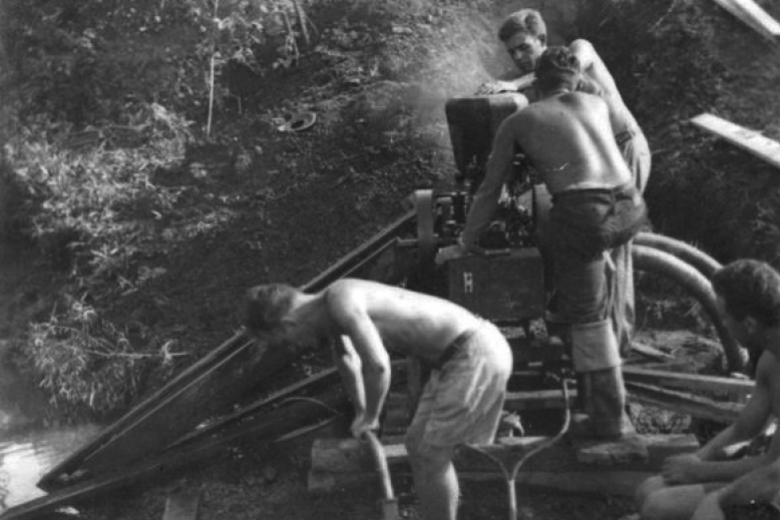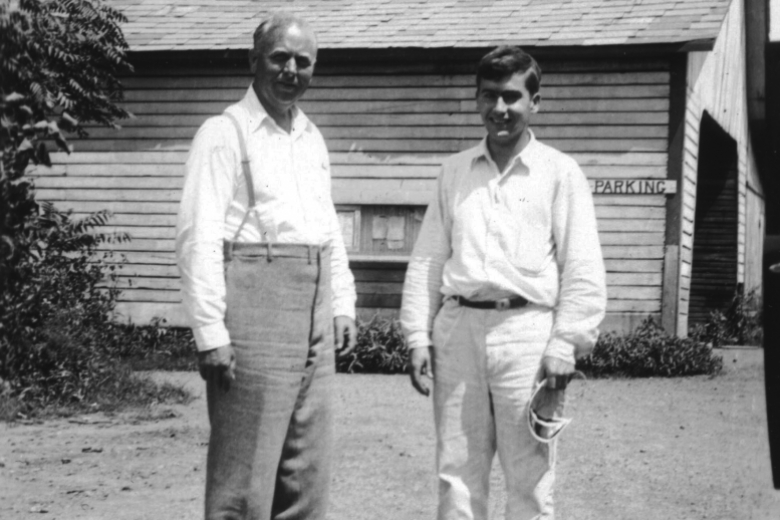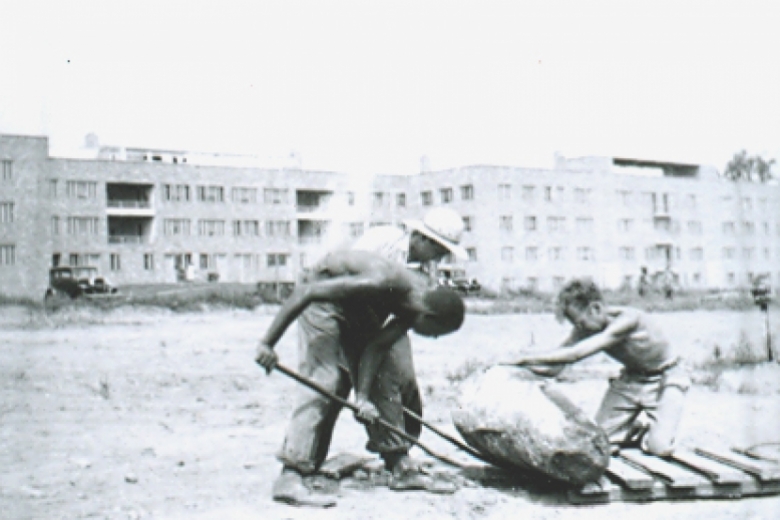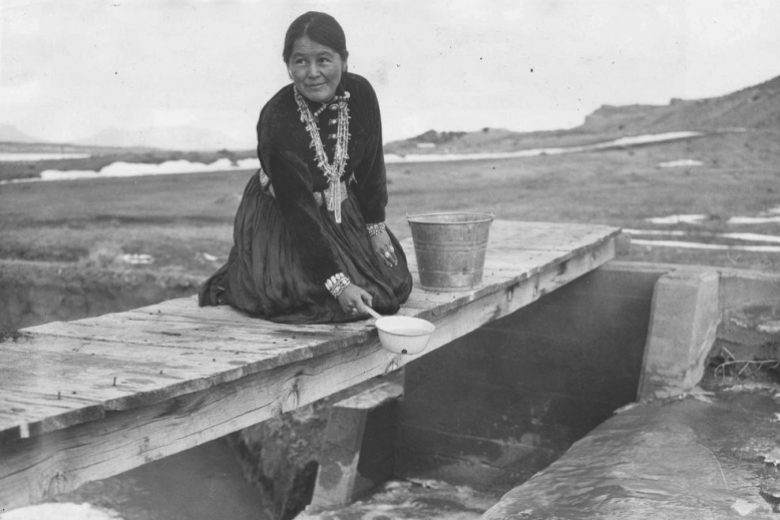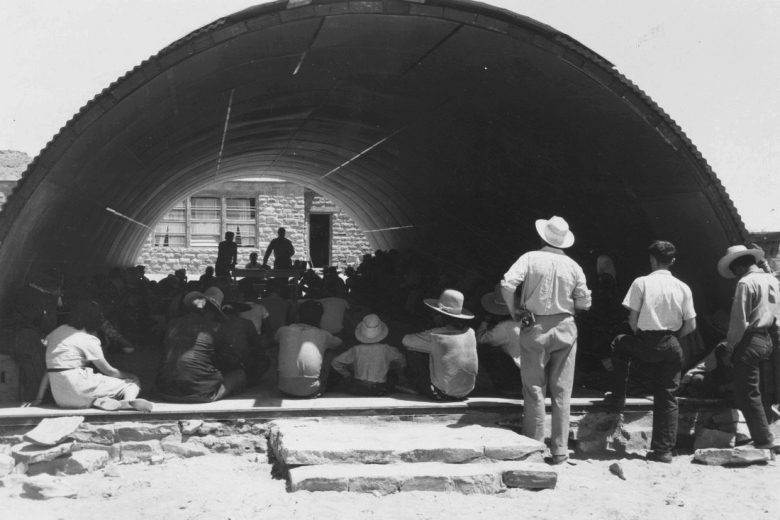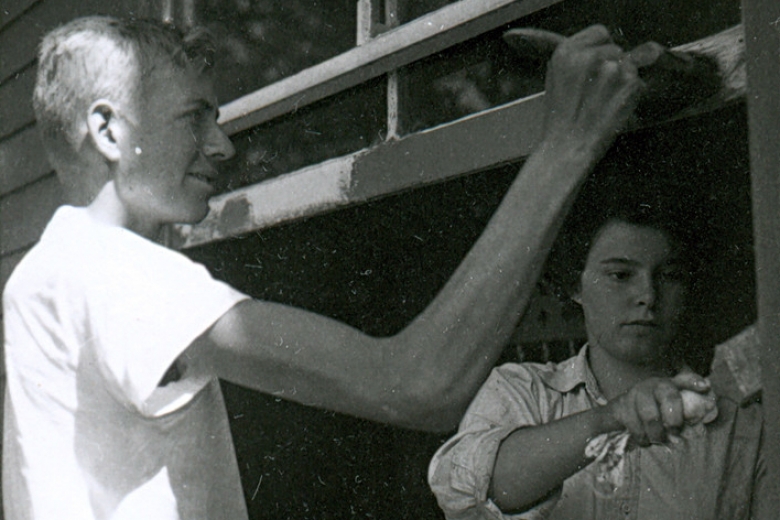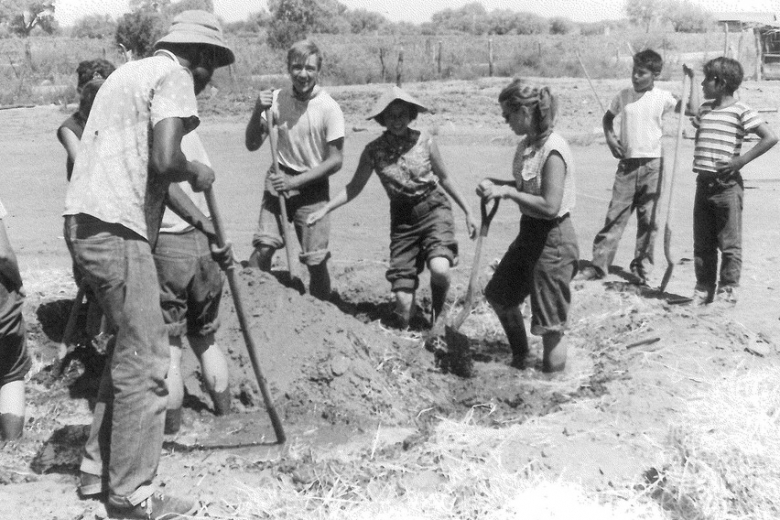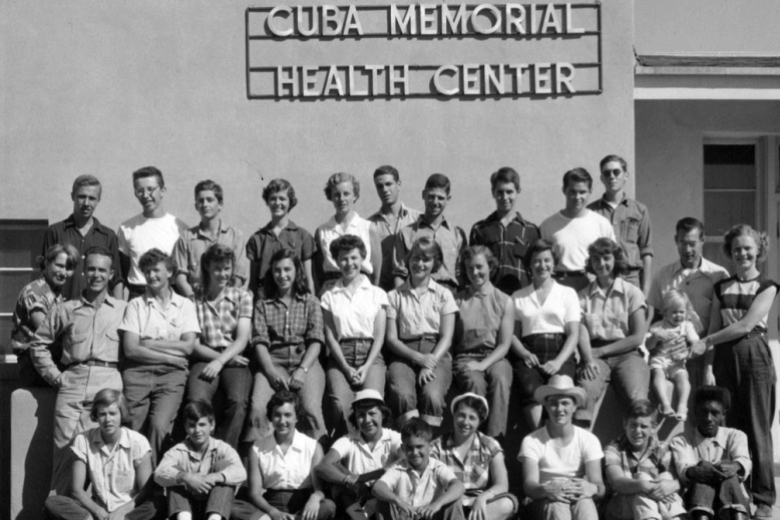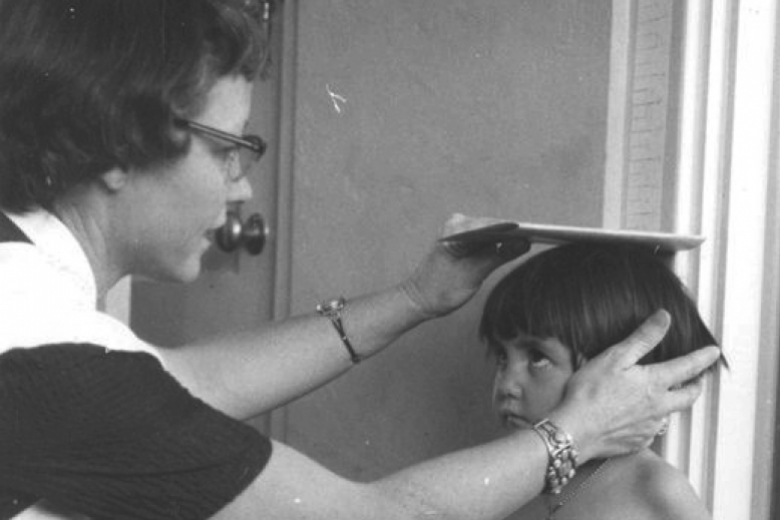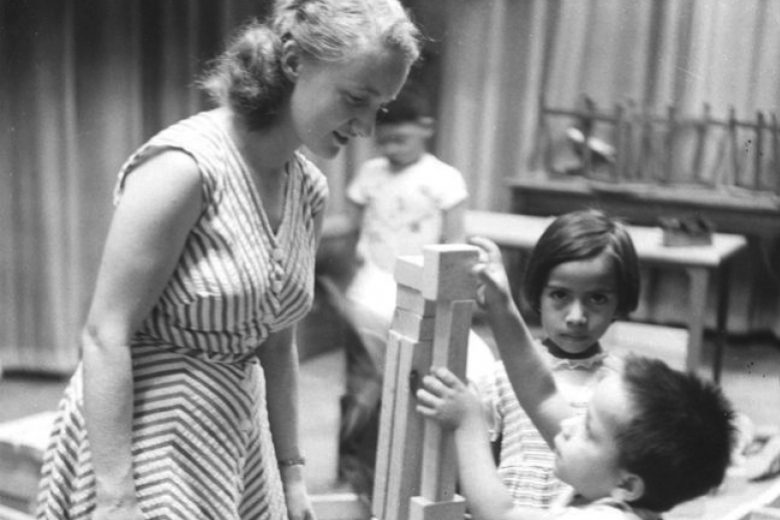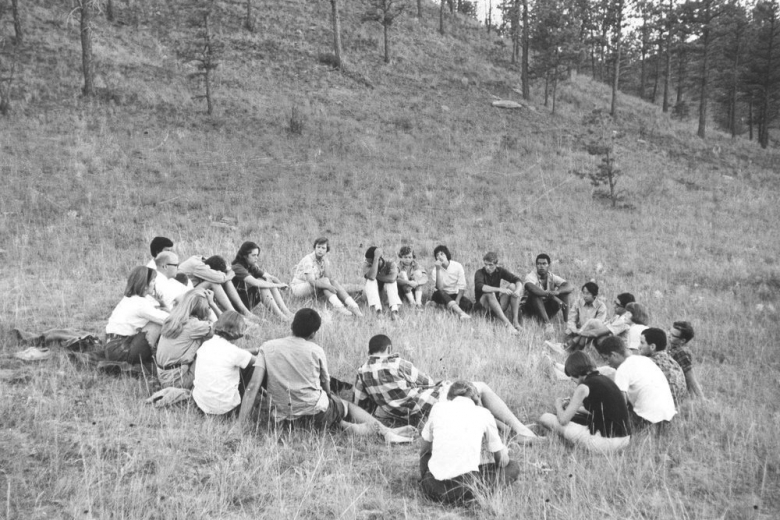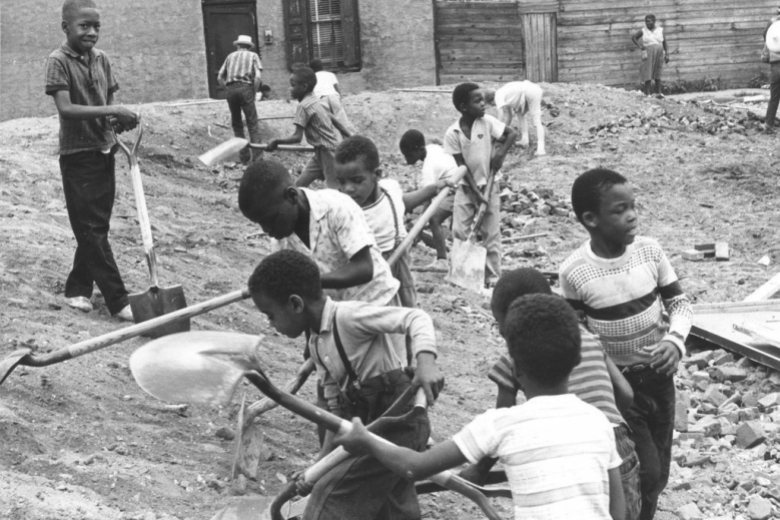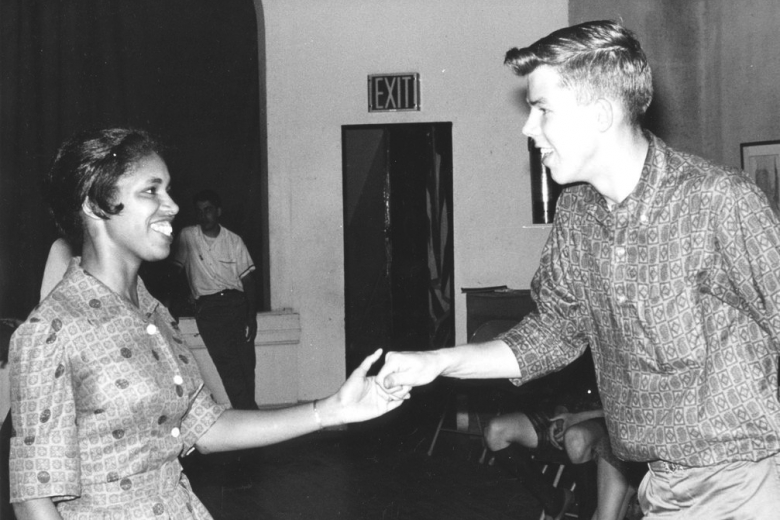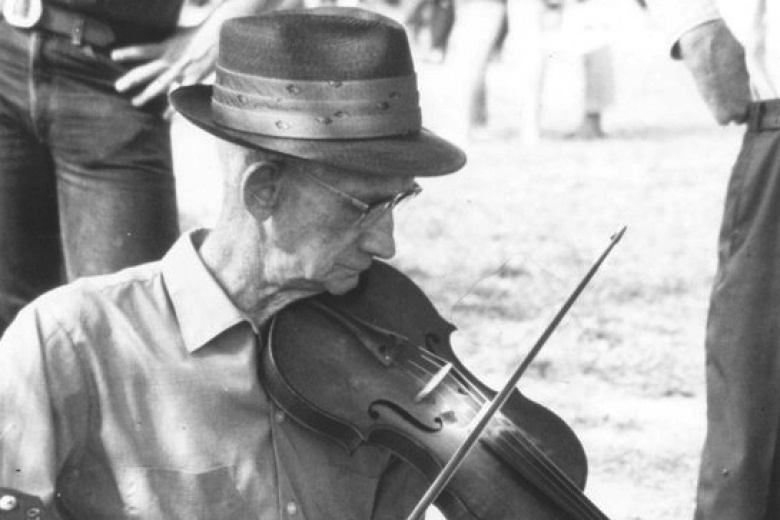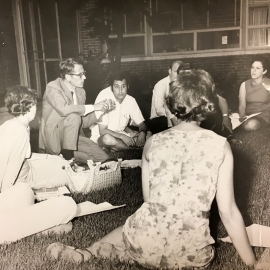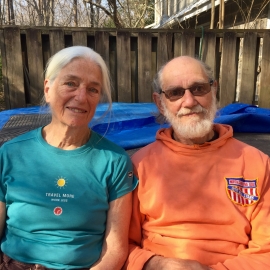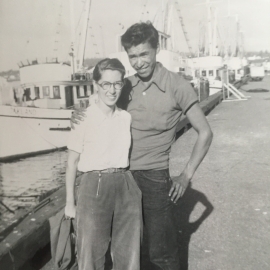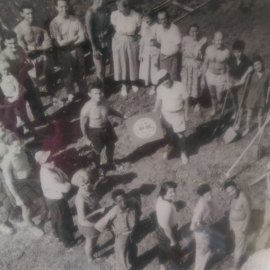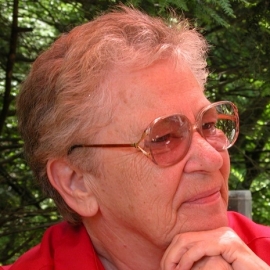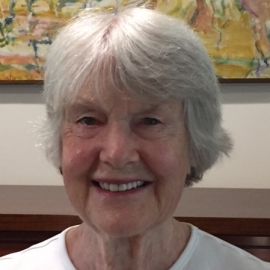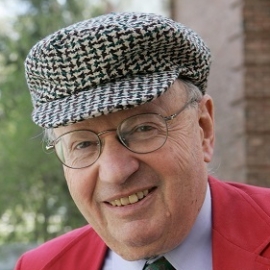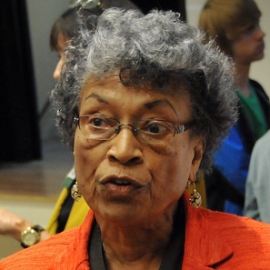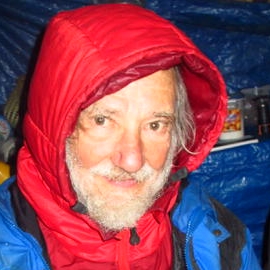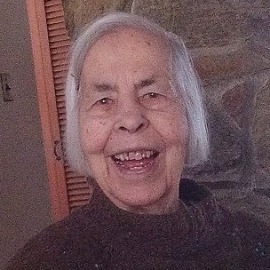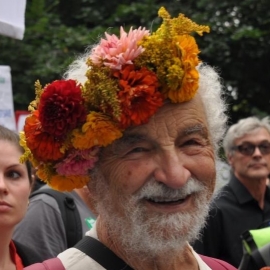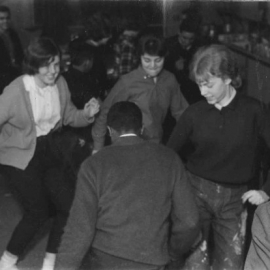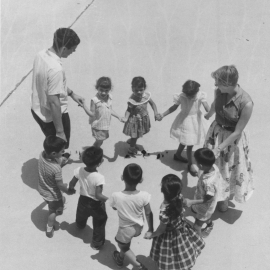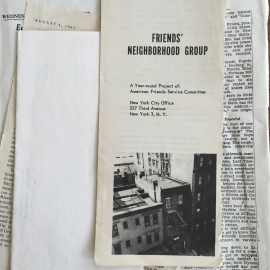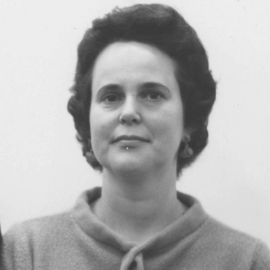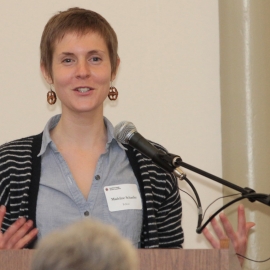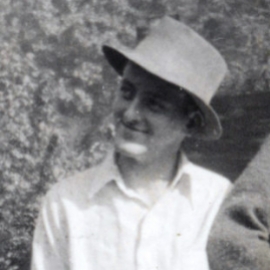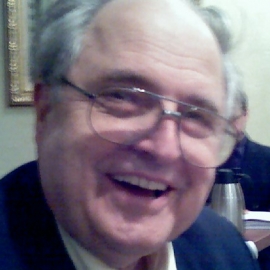AFSC’s work camps were inspired by the initiatives of Swiss war resister Pierre Ceresole in Europe. Bringing work camps to the United States in the 1930s marked a transition for the Service Committee from healing the wounds of war to striving for justice as the way toward peace.
Volunteers spent a month, a summer, or a year working where they were needed. In their service to others, the participants cultivated their own devotion to the struggle for social justice.
According to noted work camp leader David Richie, post-war America had “serious unsolved social problems of unemployment, poverty, and racial tension.” Dave wanted people to combine the act of studying these problems with work to heal them.
After taking part in our first U.S. work camp in 1934, he went on to found and lead camps between 1940 and 1973. Richie also developed the first weekend camps, which could appeal to “less socially conscious young people and [help] them to grow in awareness and commitment.” For 40 years, work camping changed the lives of young people by giving them the experience that “work is love made visible."


